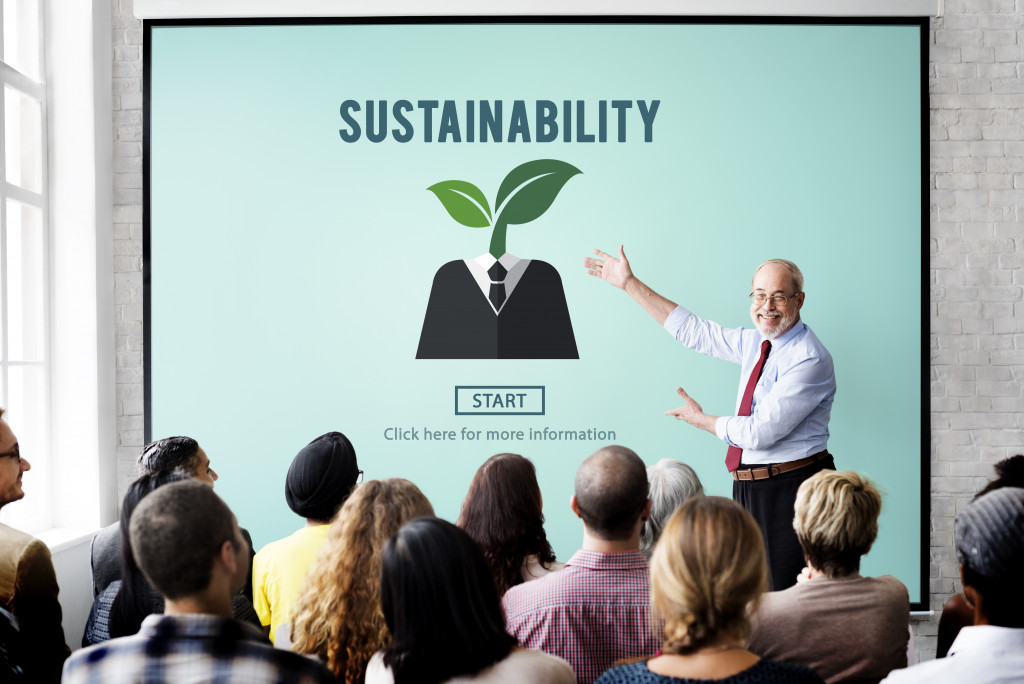Countless businesses have definitely gone through various changes over the past year. The sudden outbreak of the global pandemic forced a lot of companies to significantly transition into the digital realm. Government restrictions like localized lockdowns and sheltering-in-place gave way to remote working arrangements.
After more than a year of coping with the pandemic, daily business operations have surely adapted to these adjustments. However, entrepreneurs should also consider addressing shifting consumer preferences. The unfortunate circumstances of the previous year not only accelerated digitalization but also led to a drastic increase in conscious consumerism.
Sustainability Through the Internet
Alongside the global health crisis, threats of the imminent climate crisis also became more apparent. Last year, the country was devastated by some of the costliest hurricanes and wildfires in recent history. This attests to the fact that natural calamities are definitely increasing in frequency and intensity. As a result, consumers have become more aware of the environmental impacts of the brands they support.
Good products and services are no longer sufficient in winning consumers over. Businesses should also be able to align with the values that their customers choose to uphold. Sustainability has become a great influencer in the preferences of consumers. However, companies have been struggling with effectively putting out sustainability marketing.
In line with the rapid digitalization of various markets, entrepreneurs should consider creating online communities that will allow them to efficiently showcase their sustainability values. However, this goes beyond making commitments to become more eco-friendly. It’s more about deepening relationships with consumers, taking accountability, and having concrete end goals. Here’s what businesses should do to better express their shift to sustainability.
Bare the Truth
Transparency is becoming an increasing trend among sustainable businesses. In line with the growth of conscious consumerism, various brands have resorted to “greenwashing” or “fairwashing” in order to appear more sustainable in the eyes of their consumers. This entails putting out deceitful information about a company’s product or service, which business leaders should avoid at all costs.
Giving in to these schemes will only prove to do more harm than good since consumers have become increasingly aware of these tactics. Cultivating the trust of consumers should be a priority for all businesses.

In this light, entrepreneurs should choose to incorporate measures and technologies that will allow transparency to prevail. This can come in the form of providing more detailed communications or letting consumers trace the source of a particular product through the supply chain.
Inform Decisions
Conscious consumers have also become more diligent in researching a particular brand before availing of their goods and services. It’s only natural that they would want to make the best choices and reserve their support for businesses that are genuinely set out to make a real change. Entrepreneurs should consider helping their consumers at this stage of the process as well.
Businesses should be able to offer educational resources to gain more support from their target markets. This will also establish the credibility of their efforts and contributions towards sustainability. Being able to educate customers about their own footprints as they consume can bolster engagement and retention.
It’s important to note, however, that these educational sources be kept easily digestible for consumers. Among the means that offer the highest potential, creating a video series serves to be the most effective. Demonstrate a particular product’s relevant story in detail while integrating the company’s values.
Share the Responsibility
Another effective way to showcase a business’ commitment to sustainability is by directly involving the consumers. More than just wanting their advocacy to be reflected by a particular brand, consumers also hope to be changemakers in their own right. Business leaders should make it a point to actively engage with their targets and offer them a chance to address the issues that they care about.
Consider creating participatory experiences that will allow avenues for consumers to feel included in the company’s sustainability movement. From simply raising awareness to hosting relevant virtual events, create initiatives that will produce tangible results. Invite the consumers to be an integral part of the solution, not just supporters of it.
The Future Is Green
It’s evident that consumers have become more empowered over the past year, especially when it comes to sustainability. Over 36% of online U.S. adults are looking for avenues to contribute to their local communities, 31% have become more aware of relevant issues, and 32% are prioritizing brands with active goals of reducing their environmental footprint.
These significant behavioral changes are expected to persist well into the year and beyond, which will continue to create new demands and behaviors. Businesses should definitely improve their sustainability strategies to thrive in the post-pandemic world.
While becoming more sustainable proves to introduce more growth in the long run, businesses should be more authentic and actionable in wanting to pave a cleaner and greener future. As these genuine intentions manifest, the consumers will easily follow.

